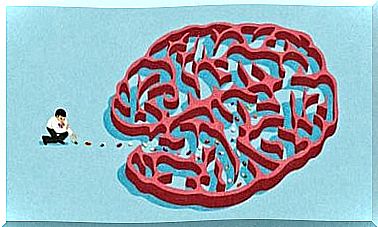How To Defend Your Decisions When Everyone Is Against

Defending your decisions when much of your environment is against it is not an easy task. Moreover, we could say that when one is sure of himself, it does not matter what others think. Now, there are times when it is necessary to reach an agreement or simply show with patience and precision what are the reasons for our choices or even the goal we have in mind.
The psychologist, pedagogue and philosopher John Dewey used to say that where there are no decisions, there is simply no life. It is a great truth; People are forced to make decisions almost at every moment, and in each of these steps, we are tracing our path. On the contrary, indecision, fear and lack of determination corner us in those places where nothing ever happens.
On the other hand, there is something evident. If it is already difficult to make a certain decision, sometimes it is also difficult to make others see the reasons that support our decisions. This occurs in almost any setting: on a personal, emotional and professional level. It is easy, for example, to find ourselves at this crossroads when we have a different vision in our work than others do.
Issues such as changing residence, country, work, leaving a partner or turning our lives 180 degrees, are those realities that often our environment cannot understand. It is clear that we do not need permission to act as our heart dictates, but in many of those steps, we must inform those around us of those decisions. And that is where we sometimes encounter resistance, surprise, and even opposition.

Keys to defend your decisions
One of the personal competencies that can help you the most on a day-to-day basis is learning to defend your decisions -developing assertiveness in this orientation-. Our world and a large part of those scenarios in which we move daily are very used to the predictable, to that routine where any alteration is perceived as a threat. Thus, in the workplace, phrases such as ‘why change if this has always worked for us’, ‘why do it different if everyone does it the same’, etc. are common in the workplace .
Making a decision that is innovative or unexpected for others initially elicits some resistance. That is why we must be prepared and skillful when it comes to exposing, defending and even, why not, knowing how to inspire others. We do not always seek to ‘convince’, but we do unless others respect our position.
So let’s see what keys can help us.
The power of certainty: I’m sure what I want
The world of psychology has been studying that area for a long time where the power of certainty or conviction is found. What does this mean? To understand it, we will put a simple example. There are times when we take steps and make decisions completely naturally because they are based on our convictions. Because we are fully certain that we are acting according to our own values, needs and essences.
They are those moments in which we do not care that in our environment they oppose us or think differently. That self-confidence breaks down barriers. This personal security and way of acting was analyzed in a study carried out by Dr. David Sherman, from the University of Santa Barbara, California, to reach the conclusion that more than something casual, it defines an attitude towards life.
People who are certain that what they decide is in tune with their values, hearts and needs, are not afraid to defend their position before anyone. When there is self-confidence, there is no fear to argue, defend or even carry out that choice even if everyone opposes it.

Do not justify or seek acceptance, it is only about explaining in an objective and safe way
When defending your decisions, do not be obsessed with justifying yourself or seeking acceptance from others. It is essentially about informing, explaining in a calm and objective way the decision you have made. Let’s take an example. A couple decides to inform their family that they are not planning to have children. They do it in response to the constant question of their parents and other relatives about “when are they going to bring a baby into the world.”
In this case, the couple does not seek to justify anything, nor does it expect their relatives to give them the go-ahead. They limit themselves only to reporting a reality, a fact that others will have to assume. It is true that when defending a decision we would love for everyone to understand it and give us their acceptance, but this will not always be possible and it is something that must be assumed.
Criticism should not weigh when decisions are clear
When you make a decision, criticism can be a recurring travel companion. Not everyone understands our perspective and there are even those who do not respect it and are not afraid to make inappropriate comments. You have to assume it, you have to accept it. It is possible that these unfortunate words come to us from people we appreciated, but if this happens, there is only one thing to think about: when a decision is made from the heart, the fences should not hurt.
If the mind is clear and the attitude is strong, our decisions will not find walls. We will inform those around us of the path we are going to take, there will be those who understand it and there will be those who do not. The important thing in all cases is that they respect us and understand that each person is free to draw up their travel plan, because living is deciding and that is something to which we all have the right. Let’s keep it in mind.









